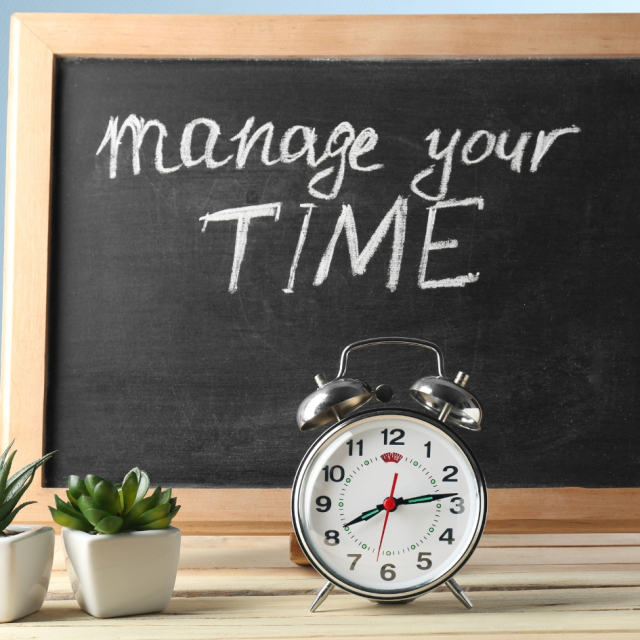Productivity isn’t just about getting more done in less time, but about focusing on what really matters and achieving your goals efficiently. Organizing your day effectively can make a huge difference in how you use your time, reduce stress, and achieve your personal and professional goals. Here we’ll explore strategies and tips for structuring your day productively, based on research and best practices.
1. Start with clear planning.
The key to a productive day is planning ahead. Before your day begins, spend 10-15 minutes planning your tasks. This can be done the night before or early in the morning. Use tools like a notebook, mobile apps, or a planner to jot down important tasks.
Prioritize your tasks : Use the top 3 rule. Identify the three most important things you need to complete for the day and put them at the top of your list. This technique ensures that critical tasks get your attention when you have the most energy and focus.
Set SMART goals : Make sure your goals are specific, measurable, attainable, relevant, and time-bound. For example, instead of writing “work on the project,” write “complete chapter 3 of the project report by noon.”
2. Create an effective morning routine.
The first few hours of your day have a significant impact on the rest of your day. A structured morning routine helps you start off with energy and clarity. Some best practices include:
Wake up early : According to experts, waking up early gives you extra time to plan and work on important tasks without interruptions.
Exercise or meditate : Moving your body or practicing mindfulness at the start of the day can improve your mood, reduce stress, and increase mental clarity.
Eat a proper breakfast : A balanced breakfast is essential to keep your energy levels stable.
3. Use time management techniques.
To make the most of your day, it's important to use proven time management strategies. Popular ones include:
Pomodoro Technique : Divide your time into 25-minute work blocks, followed by a short 5-minute break. After completing four blocks, take a longer 15-30 minute break. This helps maintain focus and prevents mental exhaustion.
Eisenhower Matrix : Classify your tasks into four quadrants based on urgency and importance. Work on important and urgent tasks first, and delegate or eliminate those that do not add value.
Time Blocking : Assign specific blocks of time on your calendar to work on specific tasks. For example, you can set aside 9:00am to 10:30am to work on a key project, and 11:00am to 12:00pm to answer emails.
4. Avoid multitasking.
While multitasking may seem like it will increase productivity, it can actually reduce it. According to research, the human brain is not designed to focus on multiple tasks simultaneously, which can lead to errors and reduced efficiency. Instead of trying to multitask, focus on one task until it is completed before moving on to the next.
5. Eliminate distractions.
Distractions are one of the biggest enemies of productivity. Identify what disrupts your workflow, such as social media, notifications on your phone, or constant interruptions, and take steps to minimize them. Some strategies include:
Mute Notifications : Turn off phone and social media alerts while you work.
Create a distraction-free workspace : Organize your work area and make sure it is free of unnecessary items.
Set boundaries : Communicate your work schedule to your coworkers, family, or friends to avoid interruptions.
6. Take regular breaks.
Although it may seem counterintuitive, taking regular breaks is essential to maintaining high levels of productivity. Working without a break can lead to mental and physical exhaustion, which decreases your efficiency. Use your breaks to completely disconnect from work: take a walk, do some stretching exercises, or simply relax.
7. Learn to delegate.
You can't do everything on your own, and trying to do so can be detrimental to your productivity. Delegating tasks to others not only frees up your time, but also allows others to develop their skills. Identify which tasks can be done by someone else and trust in their abilities to complete them.
8. Take advantage of technology.
Technology can be a powerful tool for organizing your day. Some useful apps for time and task management include:
- Trello : Ideal for organizing projects and tasks visually.
- Todoist : A simple yet effective tool for creating to-do lists.
- Google Calendar : Useful for scheduling meetings, events, and reminders.
- Focus@Will : Play music designed to improve focus.
9. Reflect at the end of the day.
Take a few minutes at the end of the day to evaluate how your day went. Ask yourself:
- What did I accomplish today?
- What could have been done more efficiently?
- What tasks do I need to prioritize tomorrow?
Not only does this habit help you identify areas for improvement, but it also allows you to celebrate your achievements, which is important for staying motivated.
10. Self-care and balance.
Finally, remember that productivity isn’t just about working harder, but working smarter while taking care of yourself. Make sure you get enough sleep, eat well, and spend time on activities you enjoy. A healthy body and mind are key to maintaining a high level of productivity in the long run.
Organizing your day to be more productive requires a conscious and disciplined approach. From planning your tasks and setting priorities, to eliminating distractions and taking care of your well-being, every small adjustment can have a big impact on how you spend your time. The key is to find a system that works for you and adapt it to your specific needs and goals. Over time, these practices will become habits that will not only increase your productivity, but also improve your quality of life.
Sources consulted:
- Harvard Business Review - Strategies to increase productivity.
- Psychology Today - Time management techniques and personal well-being.
- Todoist Blog - Practical tips for prioritizing tasks.
- Forbes - How to plan a productive day.
